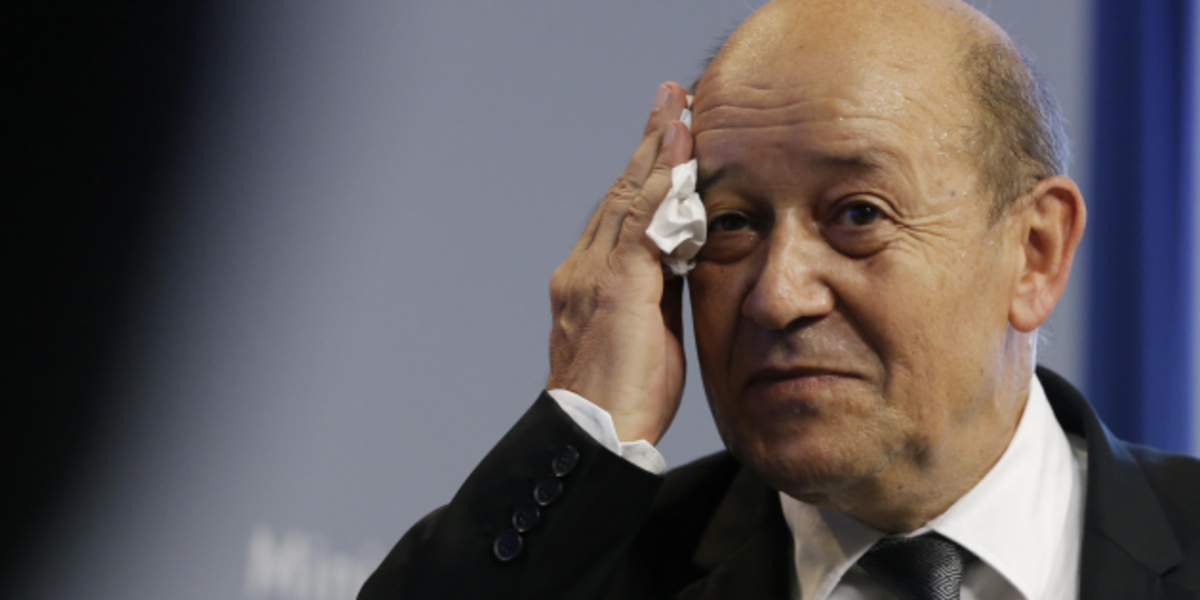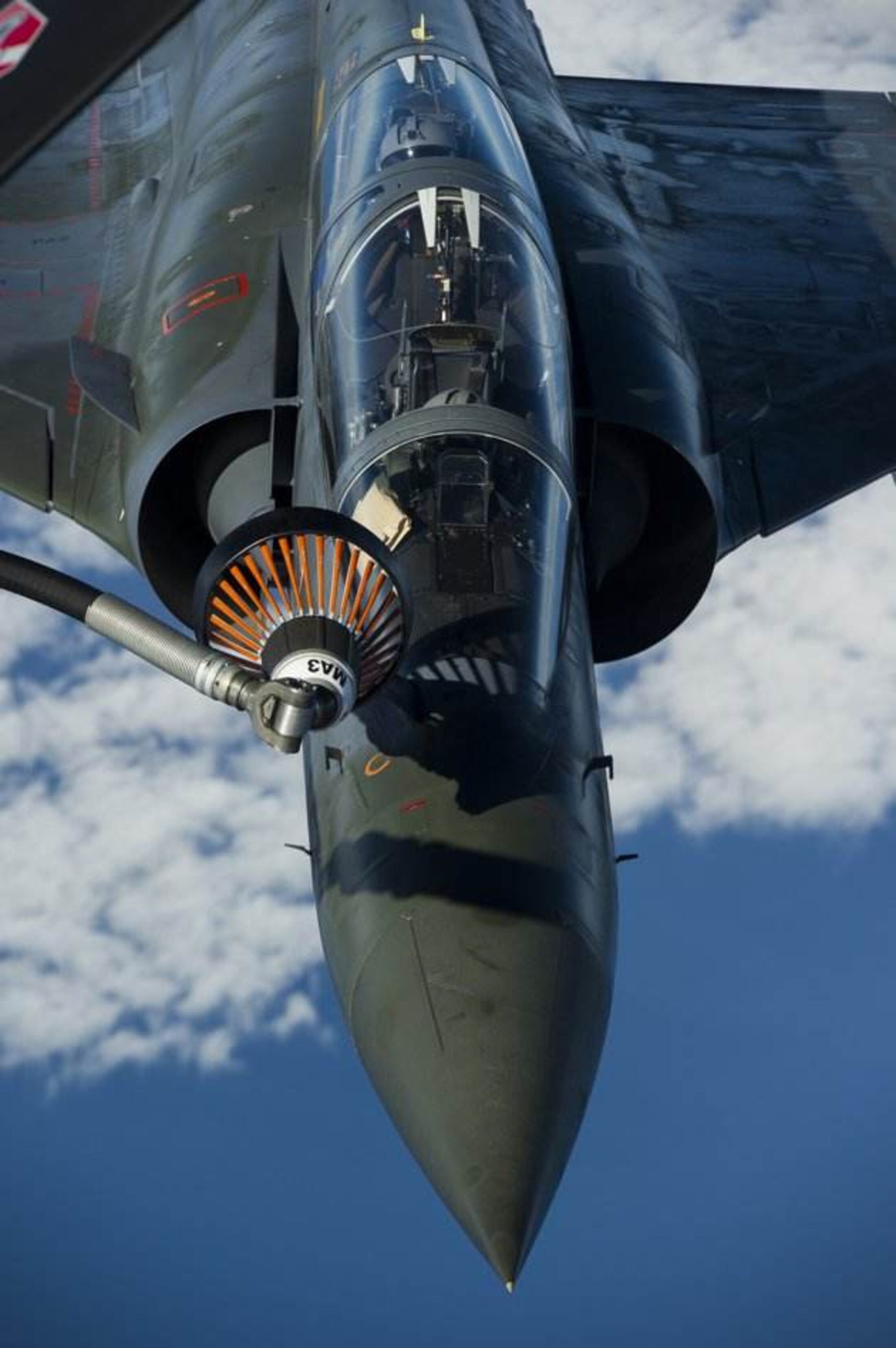France is engaged in a series of enduring military campaigns abroad, against Islamist militants in Mali and four neighbouring Sahel countries, in peace-keeping operations in the civil war-torn Central African Republic (CAR), and in air strikes against Islamic State forces in Iraq. There is increasing speculation that it may yet also find itself involved on another front, in conflict-wracked Libya.
In all, around 8,000 French military personnel are currently stationed abroad, ranging from some 3,000 engaged in Operation Barkhane in the Sahel to a small contingent involved in training programmes in Afghanistan.
But its campaigns, notably in the Sahel, CAR and Iraq, are costing France dearly as it grapples with an asphyxiating economic crisis at home, with record unemployment levels and a huge public deficit reduction target that it is struggling and failing to meet. The defence budget for 2015 is so strained that defence minister Jean-Yves Le Drian has now resorted to a plan of public-private partnerships to allow for the renewal of military equipment.
The funding of French military operations abroad is becoming increasingly difficult to ensure and the necessary extra finance can only be found by drawing from the budgets of other ministries. A number of Members of Parliament have begun voicing concern at the situation, and also over the opaque nature of the funding.
It is past practice in France that when overseas military campaigns - called Opex in French military and political jargon - run over their budgeted costs, the shortfall is made up by dipping into the purse of the wider state budget, in the form of what is called “the inter-ministerial reserve of precaution” (la réserve interministérielle de precaution). While this may appear quite logical and necessary because conflicts and their courses are not always easy to predict, the process has now become a systematic one.
In 2012, when France was involved, chiefly with Britain, in military action to topple the regime of the late Muammar Gaddafi in Libya, the shortfall in the defence ministry budget for the campaign was 873 million euros. In 2013, the cost of combined French overseas military interventions overran the budgeted cost by 1.2 billion euros. Thus, during the two-year period these so-called Opex missions ran over defence budget previsions by more than 2 billion euros.
In 2014, which began with France still principally engaged (since the previous year) in neutralising Islamic militants in Mali and in peace-keeping in the war-torn Central African Republic, the French defence ministry initially forecast it would be over its Opex budget by 450 million euros. Now, as these missions endure and with France also engaged in fighting IS forces in Iraq, the defence ministry currently estimates the shortfall will this year amount to between 1 billion euros and 1.1 billion euros.

Enlargement : Illustration 1

Le Drian’s initial forecast for 2015 is, like that for 2014, that Opex missions will overrun the budget by 450 million euros. But few would doubt that the likelihood is that this will once again prove to be well short of reality which, with the example of this year and the deepening of the conflicts, could well amount to further 1 billion euros.
The problem is not down to incompetence on the part of the defence ministry’s accountants. Under-forecasting is partly a voluntary practice which allows the ministry to largely maintain its overall defence budget, because the shortfall caused by the cost of overseas campaigns is made up from the wider state budget. “For ten years the Opex budget has been overrun,” said a defence ministry advisor, whose name is withheld. “By lowering the forecast to 450 million euros, and because the finance ministry moans every year, the minister wanted to avoid taking on the extra cost.”
Another source, close to Le Drian and who spoke on condition of anonymity, commented: “In the latest LPM [Editor’s note: law enshrining the 2014-2019 military spending programme], we’ve worked on thinning down our presence abroad. And that means, in effect, that not everything hangs on the Ministry of Defence.”
In a report published in May this year, the French national audit office, the Court of Accounts (Cour des comptes), criticised the defence ministry’s budgetary planning and called upon it “to limit the recourse to extra-budgetary resources, [which are] uncertain in their amounts and their timetable”. But what particularly worries some defence specialists, in the context of the current severe budgetary cuts across the ministerial divide to meet public deficit targets, is the likely fierce resistance that other cash-strapped ministries will now demonstrate against paying for foreign wars. The rule in this system of drawing extra-budgetary funds for Opex missions from the wider state coffers is that the other ministries contribute on a percentage basis from their own budget. This means that the education ministry is the largest contributor to meeting overspending in France’s military campaigns abroad.
“All that was OK when the other posts weren’t tight,” commented Jean-François Lamour, a Member of Parliament (MP) for the conservative opposition UMP party who sits on the defence committee of the National Assembly, the lower house, and who is sceptical about about Le Drian's new plan of public-private partnerships to reduce costs of defence equipment purchases (see video below).
Among the ruling socialist camp, some MPs are also concerned at the lack of accountability in the process. “It is such a muddle that no-one can say how much Opex cost,” complained Philippe Baumel, a Socialist Party MP who sits on the National Assembly’s foreign affairs commission. “All of it is carried out in the corridors of Bercy [Editor’s note: the site of, and common name for, the French finance ministry], without anyone being able to say which ministry pays precisely what. That raises the question of the monitoring and control of Opex [missions] by parliament. Currently, it has no right of scrutiny.”
Earlier this year, the French government planned to use the proceeds of the auction of telecom frequencies in the 700 MHz band as leverage of more than 2 billion euros of funds earmarked for the defence ministry for 2015. However, the sell-off was delayed, amid criticism from the telecommunications industry that it was a premature move (the European Union advises the 700 MHz band should be re-allotted as of 2020), and is now programmed for next year.
Deprived of the intended auction profit in the immediate future, defence minister Le Drian announced a ‘plan B’ to shore-up his budget. This consists of creating leasing structures made up of the state and defence industry companies in a form of public-private partnership (PPP). These would purchase equipment from the defence industry and lease it back to the French armed forces. The French finance ministry opposed the move, but Le Drian eventually gained the support of President François Hollande. “At stake is both keeping our industrialists afloat while respecting the LPM [five-yearly defence spending budget] by financing the planned-for equipment,” said a defence ministry source.

Enlargement : Illustration 3

In practice, the leasing structures would mean that in the case, for example, that France required a mid-air refuelling aircraft, it might purchase it directly from European aerospace group EADS and then be immediately refunded by the PPP structure, which would then lease back the tanker to the French state. Le Drian plans for the creation of several of these PPP structures, each devoted to a major equipment contract.
The exact nature of their legal frameworks is still under study. There is no information available about the amount of state financing required for their capital (which would be raised through the sale of shares in publicly-owned companies), nor which defence industry companies would participate (in all likelihood these would be French-owned firms but no final decision has been taken on this), nor on the question of guarantees (such as the damage of equipment). Finally, the extra cost to the public purse has also not been clarified. “We’re at the stage of a political project,” said a source close to Le Drian.
“The legal mechanism is complex, and it is not yet secured,” warned socialist MP Jean Launay, rapporteur for the National Assembly’s finance committee’s works on the operational defence budget. “It will be a race against time and against the resistance that could arise. I am concerned about the timetable.”
Conservative UMP party MP Jean-François Lamour, member of the National Assembly defence committee, has warned of the threat to France’s national sovereignty if ever non-French companies were invited into the PPP leasing structures. “On the one hand, nuclear dissuasion is advocated in the name of the independence of France,” he said. “But on the other, we’re going to place ourselves, tied hand and foot, with private interests?” Underlining the fragile state of France’s defence budget, he warned: “The military validated the LPM [2014-2019 defence spending budget] but they are already stretched to the limit. If it is unravelled, we can no longer do everything, dissuasion, projection and the Opex. We are engaged in numerous theatres of operations but we don’t know where to find 2 billion euros [...] We have a problem of coherence in the doctrine, between our will for independence, for example with our autonomous strikes in Iraq, and the weakening of our [defence] structure.”
The defence ministry has until the end of the year to definitively detail its budget for 2015.
-------------------------
- The French version of this article can be found here.
English version by Graham Tearse


